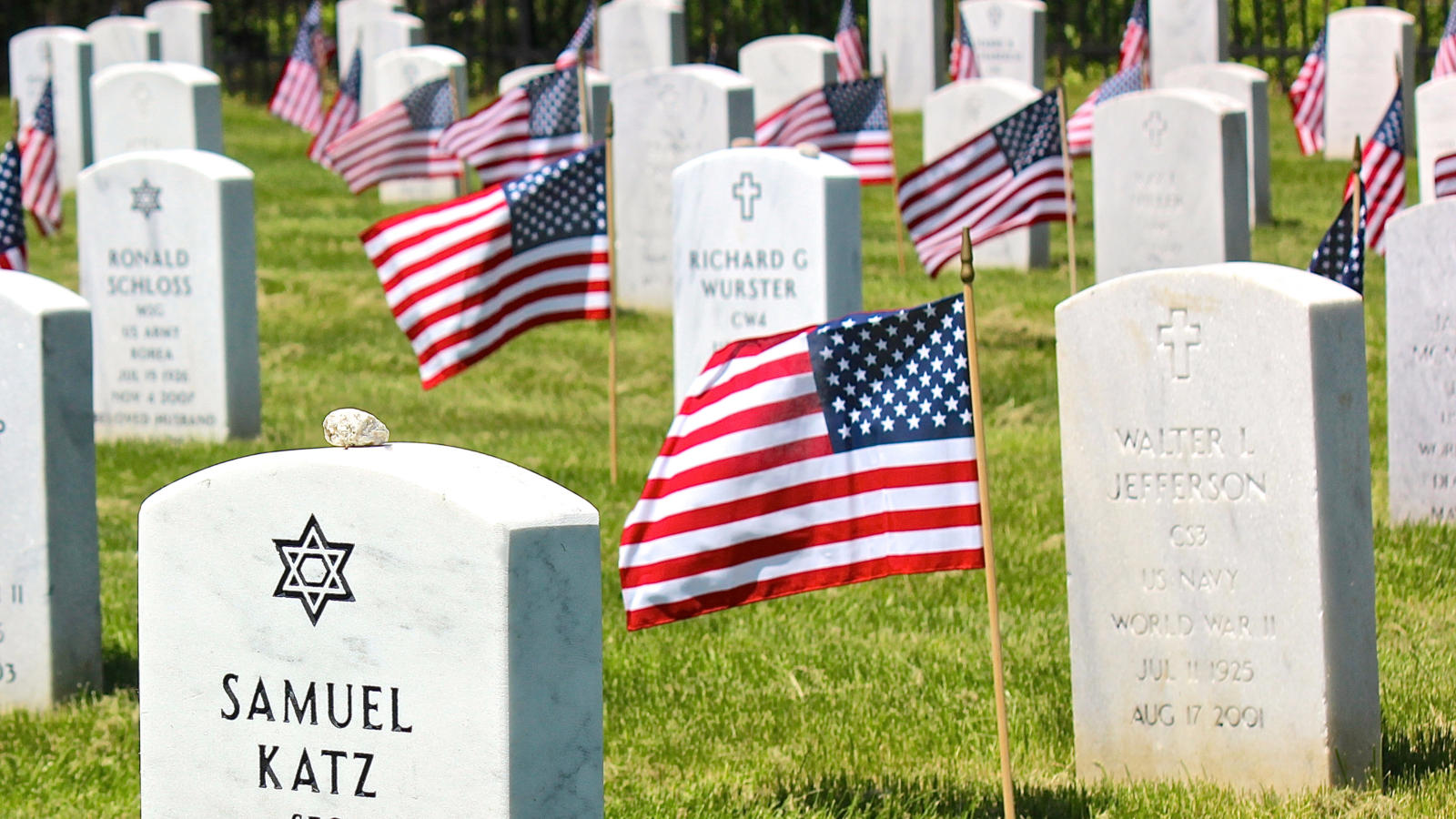Question: I know that American military funerals are really different than Jewish funerals. Servicemen and women are buried in uniform, sometimes not for quite a while after they die. And I know Jews are supposed to be buried in shrouds as soon as possible after death. So what happens when Jews in the military die? How are their funerals conducted?
–Larry, Amarillo
Answer: Legally, members of the armed forces who are killed in action, retired veterans (who had full military careers) and veterans (those who served in the military at any point, and were honorably discharged) have the right to military funeral honors, consisting of an honor guard “of not less than two members of the Armed Forces. One member of the detail shall be a representative of the parent Service of the deceased veteran. The honor detail will, at a minimum, perform a ceremony that includes the folding and presenting of the American flag to the next of kin and the playing of Taps. Taps will be played by a bugler, if available, or by electronic recording.”
Just to clarify, the honor guard, flag presentation, and playing Taps are not mandatory, but the military must provide them as an option (for free) to those who are entitled to them. Beyond that, the family or next of kin can determine how they would like their loved one to be buried. They may decide they want him buried in uniform, they may decide they want her buried in a military cemetery as opposed to a Jewish cemetery, but it’s up to the family.
With your help, My Jewish Learning can provide endless opportunities for learning, connection and discovery.
Some rabbis will discourage burying Jewish service members in military cemeteries, and some may refuse to officiate at a funeral that takes place in a non-Jewish cemetery, as there are many Jewish laws and customs governing the burial of Jews separately from non-Jews. The Conservative movement suggests that rabbis ask that the military elements of the funeral be separate from the Jewish elements because “we do not combine war and religion.” (Correspondence of the Chair of the Committee on Jewish law and Standards, 1997)
You asked specifically about delaying a funeral. A serviceman or woman who is killed in action will be escorted back to wherever he or she will be buried, and the funeral will take place as soon as the family is ready. There usually isn’t a significant delay in the burial of these service members. But you’re right that retired veterans are also entitled to a military burial and if they choose to be buried in Arlington there may be a delay before the burial. In this case the family can decide if they would prefer to wait, despite the Jewish law that requires a burial to be as soon as possible, or if they would like to have the service member buried immediately in a different cemetery.
I asked Rabbi Harold L. Robinson, director of the Jewish Chaplains Council about all of these issues and he said, “In short there is no aspect of a veteran’s funeral that would [necessarily] conflict with Jewish rites or halakhah and no need for compromises.” It really is up to the individual servicemen and women and their families.
This is a good reminder that everyone–whether they are members of the armed forces or not–should make a point of speaking to their family about where and how they wish to be buried.



